Take fertility research further
with the Birth grant.
Fresh thinking in fertility
Birth is offering funding for projects that aim to improve the treatment
of people undergoing assisted reproduction techniques (ART).

We’re dedicated to doing
things differently.
Birth is a project by Theramex. We’re a global speciality pharmaceutical company solely committed to women’s healthcare.
We’re committed to furthering knowledge and treatments in fertility-related conditions. We’re always looking for new approaches and new angles.
Part of this commitment involves funding research in reproductive medicine in order to improve understanding of treatment options which may lead to positive outcomes.

Current Projects
Since the start of the initiative in 2019 we have received more than 100 applications.
The academic standard of applications is always very high and successful projects have been chosen on their merit, innovation and feasibility, and are aligned to our overall goal of improving fertility treatments. Below is the list of projects which have been awarded the BIRTH grant

1) AI-MAR (artificial intelligence in medically assisted reproduction)
Principle investigator: Professor Nathalie Massin.
Intercommunal Hospital University Paris-Est Creteil, Creteil, France
This project primarily aims to improve standard-of-care in medically assisted reproduction (MAR). The individual objectives include: developing a predictive model of live birth that will inform couples with fertility problems about their chances of success and duration of treatment; creating an algorithm to personalise and optimise the choice of MAR techniques. The predictive model and algorithm will integrate the time to live-birth and cost-effectiveness, as well as the risk of drop out. Cost-effectiveness outcomes could inform national recommendations in fertility care.
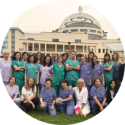
3) Study of the embryo-exported extracellular vesicles as ‘natural cell biopsy’
Principle investigator: Doctor Paola Viganò.
San Raffaele Scientific Institute, Milan, Italy
This project firstly aims to characterise the transcriptomic cargo of embryo-exported extracellular vesicles (EVs) in relation to embryo ploidy status. Secondly, the project will study the effect of embryo-derived EV uptake by endometrial cells on endometrial receptivity, again in relation to embryo ploidy status. Finally, this project aims to gain mechanistic insight into the embryo-endometrial dialog facilitated by embryo-derived EVs. Potentially harmful invasive embryo biopsies for Preimplantation Genetic Testing may be negated by instead utilising EVs – a ‘natural cell biopsy’.

5) The rate of embryo euploidy in women treated with progestin-primed ovarian stimulation vs conventional ovarian stimulation: a randomized controlled trial
Principle investigator: Professor Ermanno Greco.
Centre for Reproductive Medicine, European Hospital, Rome, Italy
This trial aims to assess the rate of blastocycst euploidy and the number of euploid blastocycsts in women undergoing in vitro fertilisation or intracytoplasmic sperm injection treated with progestin-primed ovarian stimulation vs conventional ovarian stimulation (based on the use of GnRH antagonists). Secondary outcomes include: measures of premature LH surge, FSH consumption and stimulation, and progesterone elevation; rate of poor response and hyperresponse; number of retrieved and mature oocytes; number and morphological quality of available blastocysts.

2) Exploring the role of DNA damage in oocyte meiotic arrest and its impact on genome integrity
Principle investigator: Doctor Giovanni Coticchio.
9.baby – Family and Fertility Centre, Bologna, Italy
This project will focus on the importance of DNA damage for oocyte meiosis and genome integrity, testing four hypotheses: 1) fully grown human oocytes are susceptible to DNA damage and are consequently prone to meiotic arrest; 2) systems that co-operate to assure the fidelity of chromosome segregation (namely the spindle assembly checkpoint) also prevent the production of mature human oocytes that could lead to abnormal embryos; 3) factors causing DNA damage in human oocytes can be counteracted by in vitro treatments; 4) endometriosis has relevance for human oocyte DNA damage and downstream implications.
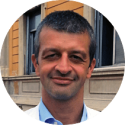
4) Improving safety of Assisted Reproductive Techniques – the possible role of embryo transfer on a natural cycle to prevent preeclampsia
Principle investigator: Professor Edgardo Somigliana.
University of Milan and Fondazione Ca’ Granda Ospedale Maggiore Policlinico, Milan, Italy
This study will evaluate the possible role of the corpus luteum in modulating the risk of preeclampsia, and explore the possible effects of the presence of a corpus luteum on the foetal cardiovascular system. Secondary analyses could indirectly reveal whether the detrimental effects are on placentation, maternal adaptation to pregnancy, or foetal cardiovascular modifications.

1) AIRPORT – A feasibility study of the impact of the level of exposure to ambient Air Pollutants on Outcomes of assisted Reproductive Technologies
Principle investigator: Doctor Meenakshi Choudhary.
Newcastle Fertility Centre at Life, Newcastle upon Tyne Hospitals NHS Trust and Newcastle University Biomedicine West Wing, Newcastle, United Kingdom
Understanding the impact of air pollutants on both fertility and the success of IVF treatment is an important area lacking in research.
Exposure to environmental air pollutants may be modifiable. We propose to study the impact of air pollutants on IVF outcomes by assessing regional air quality data as well as individual exposure to air pollutants. Our pilot study is designed to explore the variability in participants’ personal exposure to air pollutants using a portable air quality monitoring device, and to establish if it has any association with the reproductive outcomes for couples undergoing IVF treatments.
This study will determine the feasibility of conducting a large scale study. A large scale study would enable the relationship between air pollutant exposure and IVF outcomes to be more clearly understood.

3) Functional validation of two novel devices for male fertility assessment
Principle investigator: Doctor Marcos Meseguer.
IVI RMA Valencia, Spain
The aim of this project is to perform a functional validation of two novel devices for studying male fertility against established techniques. These novel techniques may have the ability to separate and quantify the four most important sperm parameters (Progressive Motile Sperm Cells (PMSC) count, morphology, acrosome status and DNA fragmentation) without the drawbacks of bulky, expensive equipment, lengthy wait times and lack of skilled technicians.
The aim is to fill the gap between lab-based methods and home-based kits, allowing cost-effective and rapid separation of the best sperm cells as well as quick, easy and accurate multiparametric evaluation of sperm samples. Hence, it represents a unique solution for male infertility diagnosis.
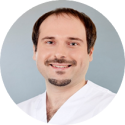
2) Sperm selection by thermotaxis: a novel technique to enhance assisted reproductive technologies’ outcomes
Principle investigator: Doctor Kadir Güney Güleresi.
IVI RMA Lisbon, Portugal
This project aims to enhance ART outcomes by increasing the use of functionally competent sperm for ICSI. Our objectives are to increase morphologically normal spermatozoa count and reduce sperm DNA fragmentation. As a result, we expect to enhance fertilization rates as well as embryo development and, ultimately, cumulative live birth rates.

4) ENIGME project: evaluation non-invasive génétique du milieu embryonnaire
(non-invasive genetic evaluation of the embryonic milieu)
Principle investigator: Doctor Daniela Nogueira.
Clinique Croix du Sud, Toulouse, France
The validity of non-invasive technologies in a clinical context is still limited and there is an immediate need in an IVF setting to develop these methodologies into reproducible tests. This project intends to evaluate the contribution of non-invasive genetic testing on clinical outcomes when used as an adjunct for routine embryonicmorphokinetic classification.
Moreover, this project aims to correlate embryo morphokinetic dynamics with the genetic material released into spent culture media. This approach could reduce time to pregnancy, by optimising the choice of an embryo for transfer with the best chances for implantation and less chance to undergo early pregnancy loss.

1) The effects of advanced paternal age on offspring health through germ cell mosaicisms: comparison between the levels of genetic mutations in blood and sperm of men of different ages
Principle investigator: Nicolás Garrido Puchalt.
IVI RMA Valencia, Spain
Average age of paternity is growing and little is known about its effects on sperm genetics causing pathologies in the offspring.
This appears to be produced by an increase in de novo mutations in older fathers’ germline/sperm by means of an “egoistic spermatogonial selection” mechanism, a phenomenon exclusive to the germ line that leads to the clonal expansion of mutations over time, changes not noticeable in the somatic line.
This is of particular relevance for preconceptional tests, as they are carried out on blood, and could be causing false negatives.
In this prospective study we want to compare between the genetic sequence of the sperm and the blood of men of different age to define the discrepancy extent, and if this is enhanced with paternal age, aiming to prevent in a near future the development of diseases in the offspring due to these neglected disparities, by testing spermatozoa instead of blood.

3) EMBRYOPROT: improving embryo quality assessment with proteomics and time-lapse
Principle investigator: Doctor Thomas Freour.
Univeristy hospital of Nantes, France
Improving the effectiveness of IVF procedures is a major medical and societal challenge. Although a large gain can be achieved at the embryo level, it is of utmost importance to decipher first the molecular events driving preimplantation development in order to provide best culture conditions to human embryos.
Non-invasive, relevant, rapid and cheap predictive readouts for embryo quality assessment are the holy grail of IVF. Time lapse raised some promises, but with still perfectible accuracy, although the onset of computer vision and artificial intelligence approaches might move things forward. Several proteomics experiments have also been reported, but with limited relevance, mainly because exploratory and non supervised approaches are very difficult in proteomics, and second because most sudies did not use last generation targeted ultra sensitive Mass Spectrometry methods.
Altogether, our project entitled EMBRYOPROT aims at using enhanced time-lapse information combined with dosage of targeted secreted markers in spent culture media, based on data mining of our virtual blastocyst secretome originating from our transcriptomic data.
Ultimately we will evaluate the feasibility of translating the results of proteomic assays into conventional ultra sensitive protein assay for daily routine use, combined with time lapse markers into a embryo viability score.

2) Effect of Vitamin D and Endocrine Disruptors on Telomere Length in Cumulus Cells and Reproductive Outcomes
Principle investigator: Doctor Evelin Lara Molina .
IVI RMA Barcelona, Spain
Assisted reproductive techniques rates are still far from excellence since these techniques are insufficient to cope with the reproductive aging phenomenon and its principal issue concerning women: the progressive reduction of oocyte’s quality and quantity. It does not seem logical that, while the life expectancy of people increases, the ovarian function remains limited to a few years, restricting fertility and affecting individual’s health. It has been suggested that other factors like vitamin D deficiency or the exposure to specific endocrine disruptors could worsen the aging process, thus having a negative impact on reproductive results. Further, the accuracy in the assessment of vitamin D is a frequently underestimated issue in infertility research, with the consequent bias and unreliable results. Likewise, measuring specific endocrine disruptors in the follicular fluid to clarify its possible negative reproductive impact is a technical challenge.
The main objective of this project is to study the impact of serum and follicular vitamin D status and the presence of specific endocrine disruptors in follicular fluid on reproductive outcomes, and, additionally, to investigate if this relationship is intermediated by telomere shortening in leukocytes and cumulus cells. From these results, in the next step towards translation to the clinical routine, we would be able to design specific trials aiming to treat either these molecules or the telomere length itself.
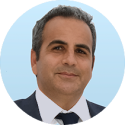
4) Creation of an application to meet the needs and expectations of patients and couples in the process of medically assisted procreation
Principle investigator: Doctor Wassim Badiou.
Cluster for Artificial Intelligence Sophia Antipolis, Antibes, France
This project primarily aims to obtain a scientifically proven fertility score through the usage of a mobile application and an AI.
The app will be used massively by patients and practitioners in the process of medically assisted procreation.
The goal is to identify the decision points, the treatments and support to provide in order to optimize the ART pathway.
A predictive model will be developed by cross-referencing anonymized mass clinical data with the one collected by the app.
1) Effects of maternal age and FSH/AMH circulatory levels on oocyte-cumulus communication and oocyte/cumulus gene expression profiles
Principle investigator: Prof. Jose Buratini.
São Paulo State University; Eugin Italy
The study will investigate the relationship of maternal age and basal FSH levels with oocyte quality as assessed by oocyte and cumulus cells mRNA patterns, as well as through cumulus-oocyte communication mediated by transzonal projections.
The immediate objective of this study is to provide a better understanding of the mechanisms underlying the age-related loss of oocyte developmental competence.
The final translational objective is to provide basis for the development of novel strategies capable to reduce the impact of aging on oocyte developmental competence.
3) Immunological mechanisms in assisted reproductive techniques (ART)
Principle investigator: Doctor Andreas Schallmoser.
University of Bonn – IVF-laboratory, Germany
The main purpose of this study is to determine possible correlations of the immunomodulatory protein HLA-G in male semen vs. pregnancy outcome of the female partner with focus on the abortion rate and pregnancy complications.
2) Ovarian response and embryo development in double stimulation (DUOSTIM)
Principle investigator: Doctor Joaquin Llacer.
Instituto Bernabeu Alicante
The study will compare the ovarian response and embryo development following double stimulation (DUOSTIM) in poor prognosis patients undergoing pituitary suppression with medroxyprogesterone acetate (MPA) versus those undergoing conventional treatment with a gonadotropin-releasing hormone (GnRH) antagonist.
Considering that the “freeze all” strategy is mandatory in DUOSTIM ovarian stimulation, the demonstration of the efficacy of progesterone priming ovarian stimulation (PPOS) versus conventional treatment will be beneficial in terms of patient convenience and cost of the DUOSTIM treatment.

We’ve seen the journey through their eyes.
And the eyes of a healthcare provider.
Now it’s time for a fresh pair of eyes.
We are not currently accepting new applications for the Birth grant
Key dates
Submissions open
Submissions deadline
Proposals awarded

Entry requirements
Eligibility
You’re eligible for a Birth grant if:
You’re a researcher or clinician
You’re based in Europe or Australia
You work in a reproductive medicine academic unit, ART clinic or human reproduction research centre
Unfortunately, the following aren’t eligible:
Individuals
Patient organisations or charities
Projects aiming solely to purchase materials or equipment
Funding for ongoing studies or research
Funding criteria
Funding is dependent upon various factors including (but not limited to):
Innovation
Project feasibility
Merit of the proposal
Duration of the proposed study
Availability of funds
Requests for a Birth grant and ISS support will be reviewed and evaluated by an internal scientific/medical committee based on pre-defined criteria, the most important of which are listed above.
Only 1 proposal per unit/ART clinic/research centre will be evaluated.
Applications will not be considered if funding has previously been provided within the past 3 years.

For medical information, adverse events reporting and product quality complaints for any Theramex products:
BIRTH
(Better Innovation and Research with Theramex)



